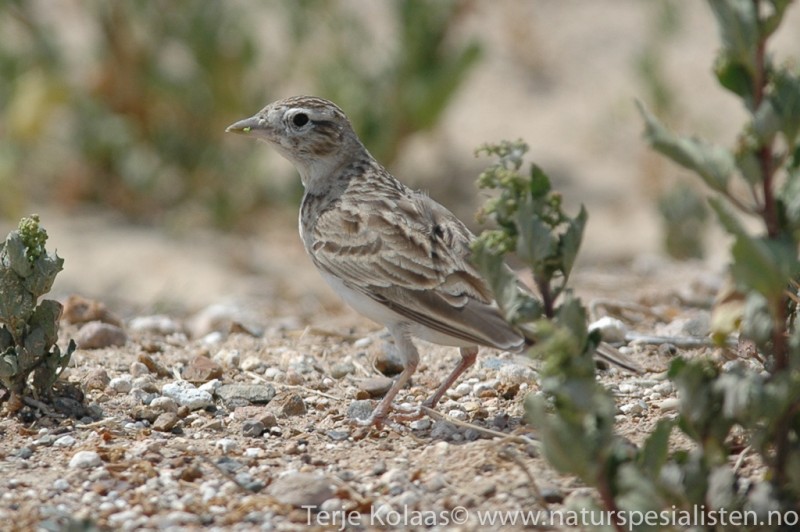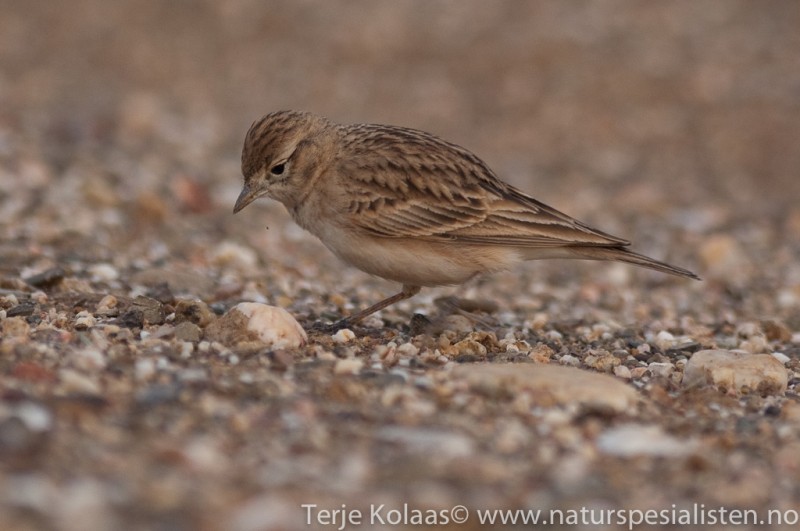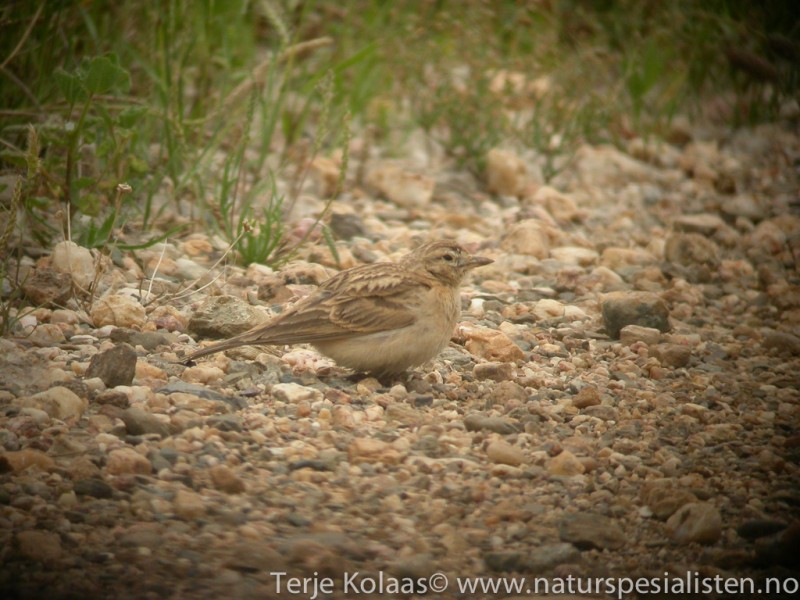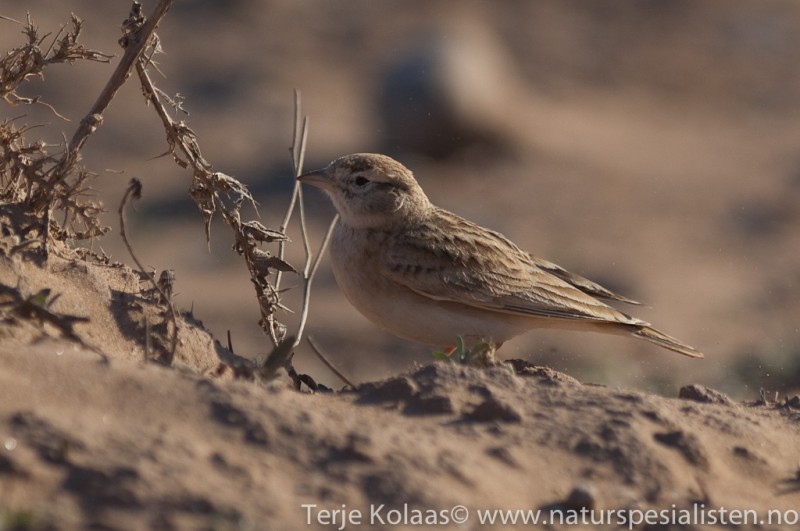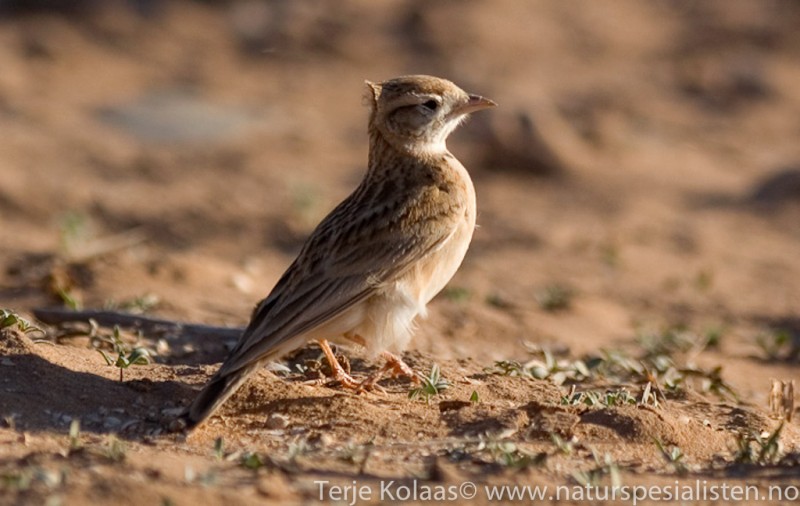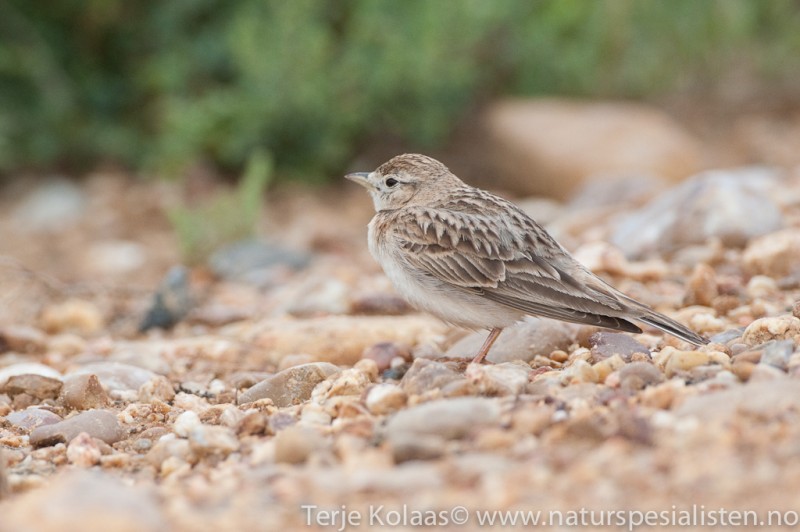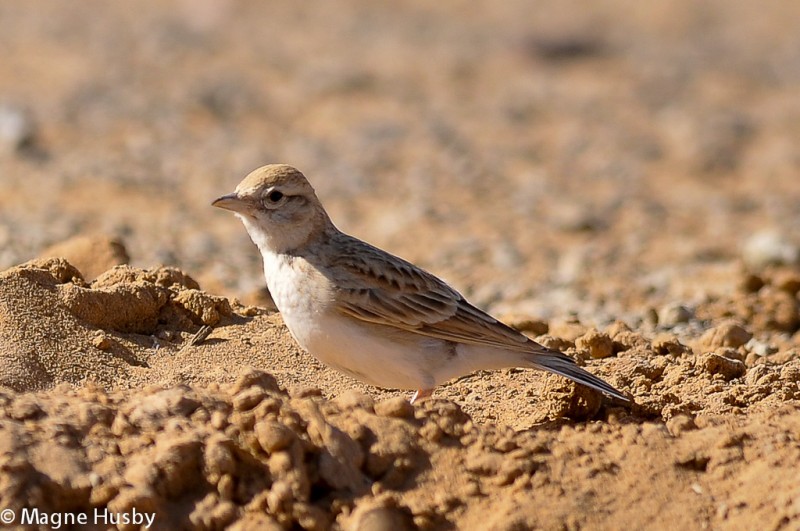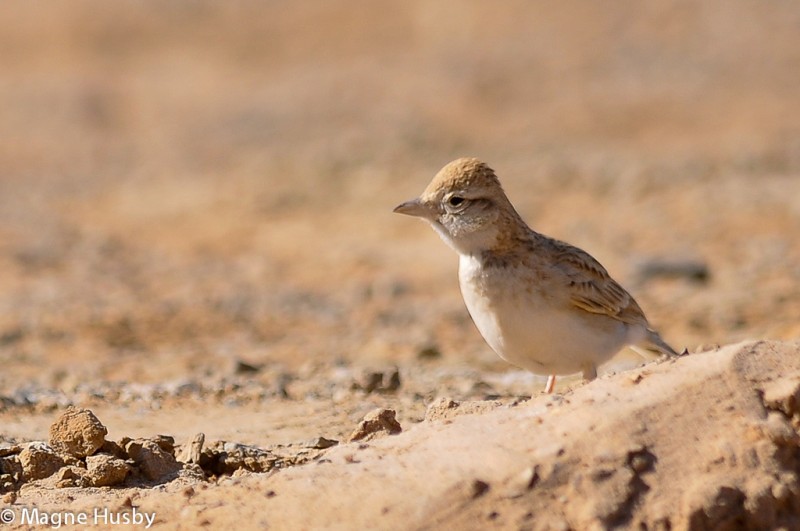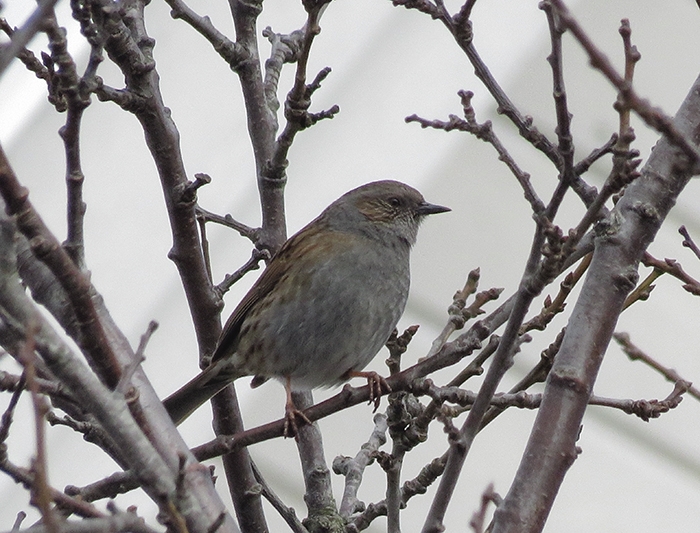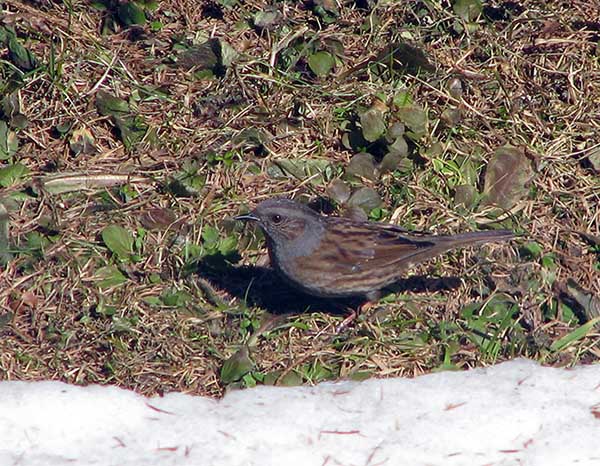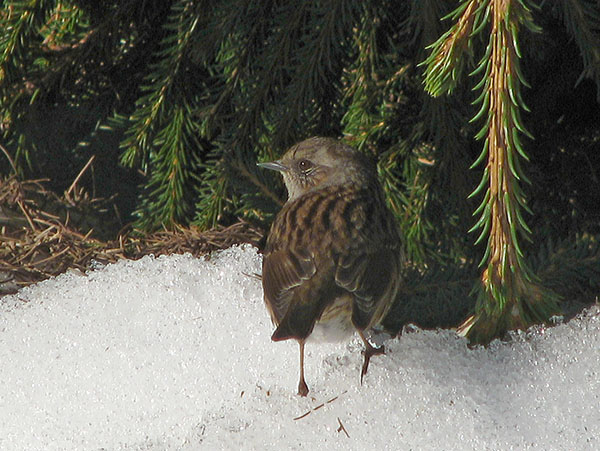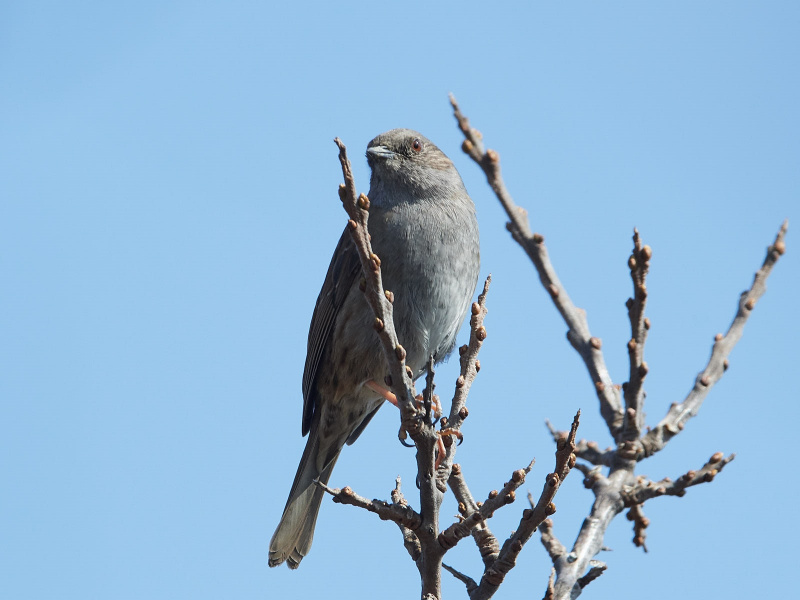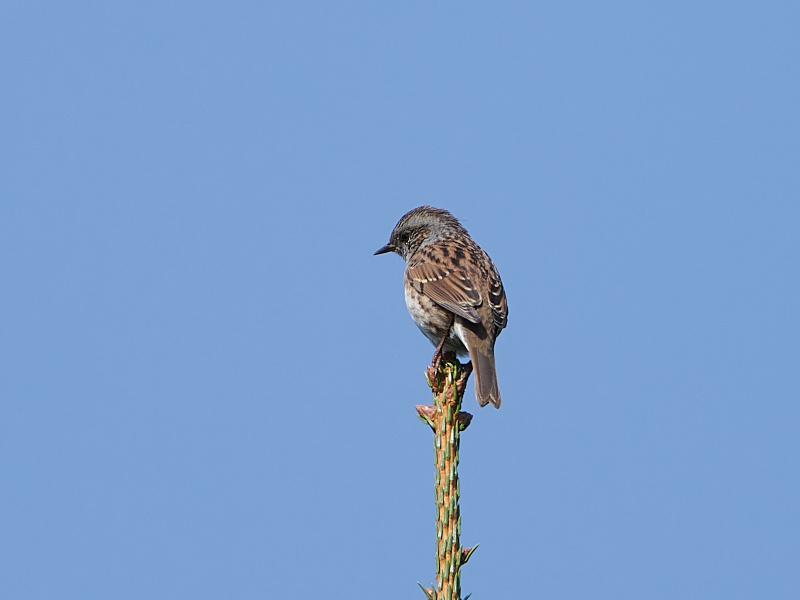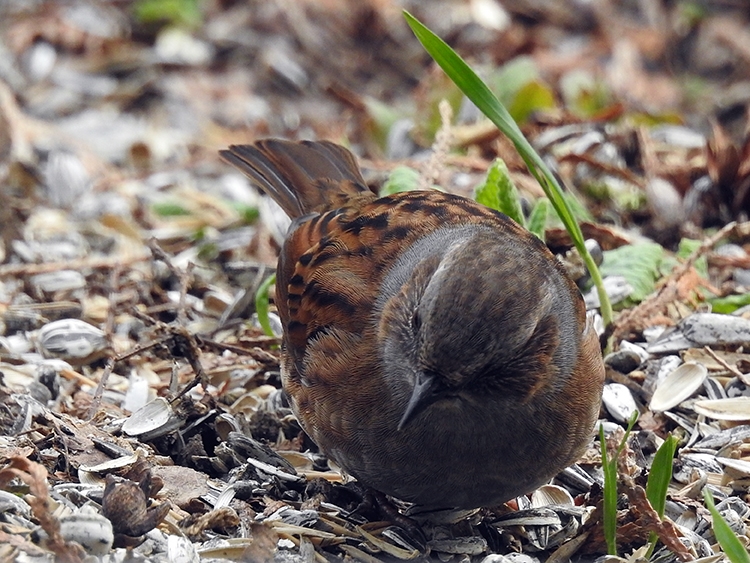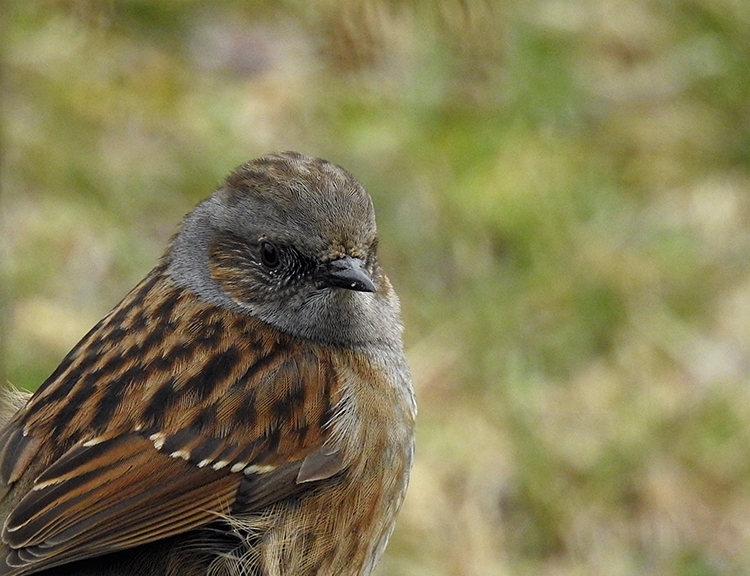Short-toed Lark (Calandrella brachydactyla)
Dunnock (Prunella modularis)
Small, compact lark with finch-like bill. 30% smaller than Skylark. Primaries almost completely covered by tertiaries, as opposed to Lesser Short-toed Lark. Upperparts typical lark-like, while underparts are almost unstreaked. Most individuals shows small, black shoulder patch. Bill deep, but pointed. Base colour variable, but western birds usually warmer brown than eastern. Lacks crest. Crown is rather flat (often rufous) and head squarish. Tail black with buff centre and pure white outer feathers. Often forms finch-like flocks when not breeding. Flight moderately undulating.
Sound:Contact call a dry, short and House Sparrow-like "chirrrp", with a high-pitched component. Shorter than Skylark, and crisper and straighter than Lesser Short-toed Lark. Song usually performed high in the air, but can also be heard from the ground. 2 types of song. Either in short phrases with a typical duration of 1-3 seconds each, with stuttering introduction, and falling cadence. Other song type more confusing and harder to identify, consisting of a continuous stream of energic improvisation. Listen for interwoven contact calls, and lack of Lesser Crested Lark calls. Frequently mimicks other species.
Song:
Distribution:
Wikipedia: map (se also Xeno-canto below)
Ecology:Birdlife ecology
Links:
Observation.org Latest observations
Image search Flickr NB! May give other species
CCSparrow-sized, brown and streaked passerine with slate-grey head and chest. Bill thin and warbler-like, head rounded. Narrow, pale wing-bars. Often forages on ground in a crouched manner, creeping or hopping with legs almost hidden. Flicks wings and tail when restless. Secretive behaviour, except when visiting feeders and when singing from tree tops.
Sound:Contact call a dry, thick trill "trrr", and a short King Fisher-like, high-pitched "zeep". Song a fast and evenly paced, high pitched stream of clear notes. No consistent phrasing. Similar in timbre to Robin, but does not vary tempo or pitch nearly as much. Often compared to the sound of a squeaky wheelbarrow.
Song:
Distribution:
Xeno-canto: map
Ecology:Birdlife ecology
Links:
Observation.org Latest observations
Image search Flickr NB! May give other species
CC
 English
English Albanian
Albanian
 Armenian
Armenian
 Bulgarian
Bulgarian
 Catalan
Catalan
 Croatian
Croatian
 Czech
Czech
 Danish
Danish
 Dutch
Dutch
 Finnish
Finnish
 French
French
 Georgian
Georgian
 German
German
 Greek
Greek
 Hungarian
Hungarian
 Italian
Italian
 Latvian
Latvian
 Lithuanian
Lithuanian
 Macedonian
Macedonian
 Norwegian
Norwegian
 Polish
Polish
 Portuguese
Portuguese
 Romanian
Romanian
 Russian
Russian
 Sami : Lule sami
Sami : Lule sami
 Sami : North sami
Sami : North sami
 Sami : South sami
Sami : South sami
 Scientific names
Scientific names
 Serbian
Serbian
 Spanish
Spanish
 Swedish
Swedish
 Ukrainian
Ukrainian


